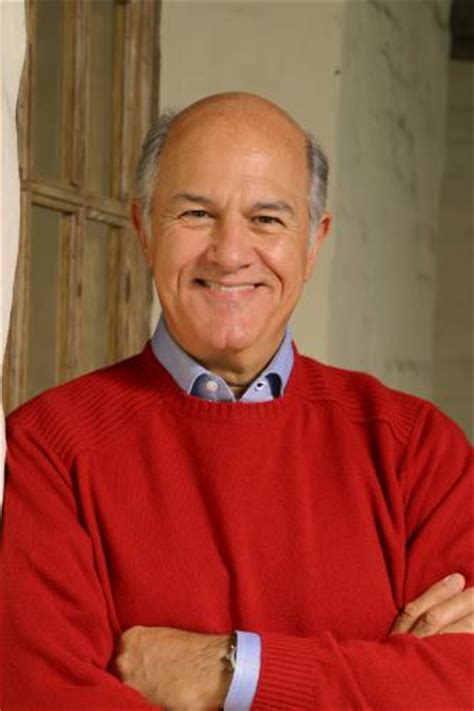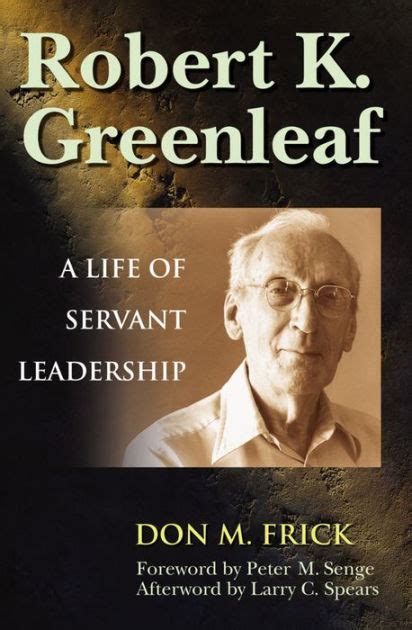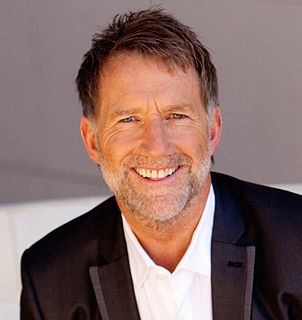A Quote by Diane Dreher
Where another person sees problems, a leader sees possibilities. ... Leaders must have the courage to follow their vision, to believe in the invisible, to work for something that's still only a possibility, while others often wring their hands in despair.
Related Quotes
Who’s to say that it takes something like a drug to mess with your perception of reality? How did Hitler deceive a nation? How can one group of people look at the world and see one thing, and another see something completely different? One sees a town, another sees a desert. One sees beauty, another sees chaos.” The skin of this world,” he said quietly.
The person who observes a clock, sees in it not only the pendulum swinging to and fro, and the dial-plate, and the hands moving, for a child can see all this; but he sees also the parts of the clock, and in what connexion the suspended weight stands to the wheel-work, and the pendulum to the moving hands.
Leaders encourage others to continue the quest and inspire others through courage and hope. Leaders give heart by visibly recognizing others' contributions to the common vision. With a thank you note, a smile, an award, and public praise, the leader lets others know how much they mean to the organization.
Moral authority is another way to define servant leadership because it represents a reciprocal choice between leader and follower. If the leader is principle centered, he or she will develop moral authority. If the follower is principle centered, he or she will follow the leader. In this sense, both leaders and followers are followers. Why? They follow truth. They follow natural law. They follow principles. They follow a common, agreed-upon vision. They share values. They grow to trust one another.
People buy into the leader before they buy into the vision. Many people who approach the area of vision in leadership have it backwards. They believe that if the cause is good enough, people will automatically buy in and follow. But that's not how leadership works. People don't follow worthy causes; they follow worthy leaders with a cause they can believe in. They buy into the leader first.
What is courage? This courage will not be the opposite of despair. We shall often be faced with despair, as indeed every sensitive person has been during the last several decades in this country. Hence Kierkegaard and Nietzsche and Camus and Sartre have proclaimed that courage is not the absence of despair; it is, rather, the capacity to move ahead in spite of despair.
A leader always has one major message, and this weaves into everything he or she does. It remains the primary focus. A leader is to some degree a prophet, a person with a message. Great leader [sic] see things that others don’t. They preach it until others can see it as well. Their message supports the mission. A leader is a preacher, a person who communicates the fire of the mission. Not all preachers are leaders, but all great leaders will be preachers of one sort or another.
Just because something is invisible doesn't mean it isn't there. At any given time, there are a host of invisibles floating among us. There are clairvoyants to see ghosts; but who sees the invisible emotions, the unrecorded events? Who is that sees love, more evanescent than any ghost, let alone can catch it? Who are you tell me that I don't know what love is?
I think history is only ever invisible when it abets your sense of self, your desires, your ambitions, when it carries your life along in a kind of frictionless way. History is never invisible, finally, though some people seem to work very hard to be willfully blind. That's too harsh, or too self-righteous: none of us sees history fully; none of us is adequately aware of how the arrangements of the present moment foreclose the possibilities of others to fully live their only lives.
Often, in a given project team or network, one sees leadership roles shifting among various members at various times. Attempts to fit these into traditional views of "leader" and "follower" don't quite work. It's more like Twitter: the "leader" has "followers" - but the "followers" are empowered to alter the relationship unilaterally, and the "leader" must continually earn the consent of the "followers."


































